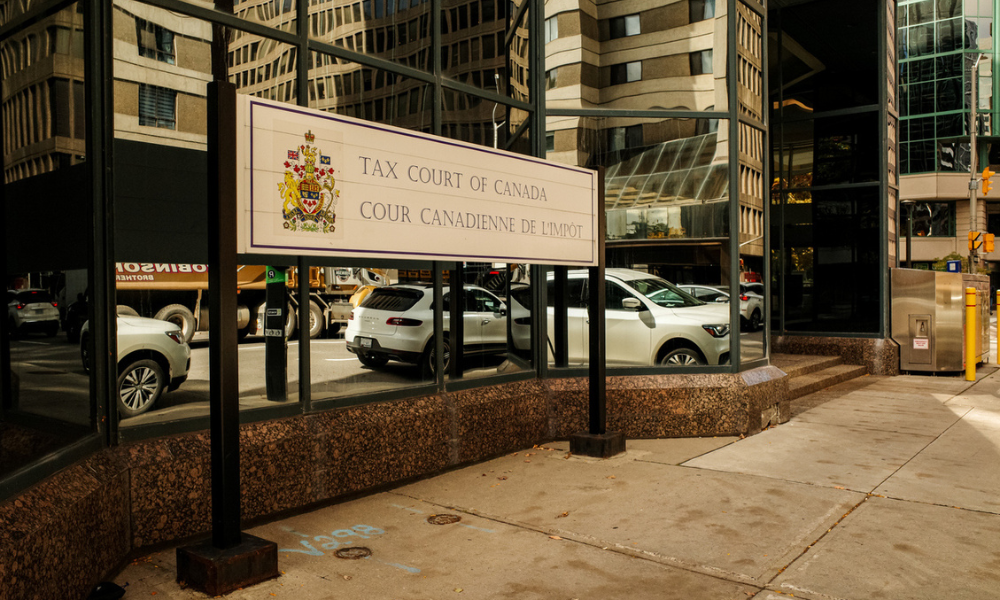Aspects of regulations 'very good,' but improvements needed, says Osler's Sander Duncanson

Through the new Clean Fuel Regulations, which come into effect on Canada Day, the federal government intends to reduce the carbon intensity of gasoline and diesel transportation fuel to 15 percent below 2016 levels by 2030.
This is part of the push toward a lower carbon economy seen across the whole developed world, says Sander Duncanson, co-chair of the regulatory, Indigenous, and environmental group at Osler. Duncanson is advising fuel suppliers and importers on the new regulation, as well as companies looking to create compliance credits through them to earn revenue.
“There are some things that the federal government did with these regulations that are actually very good,” he says. “But there is room for improvement.”
Some jurisdictions have been more prescriptive about the types of low-carbon fuels they will support, says Duncanson. For example, California is limiting acceptable low-carbon fuels to those that are biogenic-based or renewable, such as ethanol and blended fuels.
But Canada’s regulations took a broader, more “industry agnostic” approach, he says.
“If you can figure out a way to lower the carbon intensity of fuels – in any way, regardless of whether it's biogenic-based or something else – conceptually, you can create credits under the federal regulations. Personally, I think that that approach makes a lot of sense. It fosters innovation because it doesn't preclude anything. We don't know what new technologies might come along.”
“I think if the objective is just to lower the carbon intensity of fuels, it's better, in my view, to take an open-minded and broad approach to support anything that achieves that goal.”
On the other hand, Duncanson says that there are some factions in Ottawa for whom the road to net zero involves phasing fossil fuels out of the economy as quickly as possible and for whom creating “low carbon fuels” means displacing fossil fuels with an alternative.
“That's a different objective,” he says. “That's actually not the way that the regulations are written. But it's the way that certain people in Ottawa are administering the regulations.”
“My view is that's not the right approach. If the objective is to reduce carbon in the economy and reduce carbon in fuels, we should be more flexible about how that's done. We really shouldn't care, particularly in the short term, about the way that those carbon efficiencies are gained.”
The Clean Fuel Regulations create another carbon-compliance market in Canada, applying to companies in Canada that produce or import gas or diesel fuel and taking “a lifecycle approach,” evaluating emissions associated with a fuel from extraction, processing, distribution, to end-use. The regulations create a credit market where regulated parties create and buy credits to comply with reduction requirements. Those with extra credits can accumulate them for later use or sell them.
There is a “volumetric requirement” in the regulations, according to which a certain percentage of gasoline and diesel must be blended with a low-carbon fuel. There is also a requirement to lower the fuel’s carbon intensity over time, establishing a benchmark for carbon intensity.
“That benchmark gets lower and lower over time,” says Duncanson, “which means companies needed to produce or create more and more compliance credits over time to bring their carbon intensity to the required level.”
He says that companies are exploring how to create credits, including through carbon capture and sequestration products, and investing in hydrogen projects. “There are lots of different types of activities that could potentially generate credits under this regime, so fuel suppliers are looking at actively investing in those projects so that they can create credits themselves. They're also looking at purchasing credits from third parties.”
A consistent theme in the feedback Duncanson has heard from clients concerning the new Clean Fuel Regulations – consistent with the response to most new regulatory frameworks – is the need for certainty.
“Companies need to understand what the rules are and how those rules will be applied so that they can make informed business decisions about the best way to achieve compliance,” he says. “When there are rules that are vague, or they are being administered in inconsistent ways, that makes it very difficult for a company to determine the best and most efficient means of compliance.”
“Right across the board, whether you're talking about large fuel suppliers, small fuel importers, or non-regulated parties that are looking to create credits – they all want more clarity on what exactly the regulations provide for and consistent interpretation and application of the regulations.”









